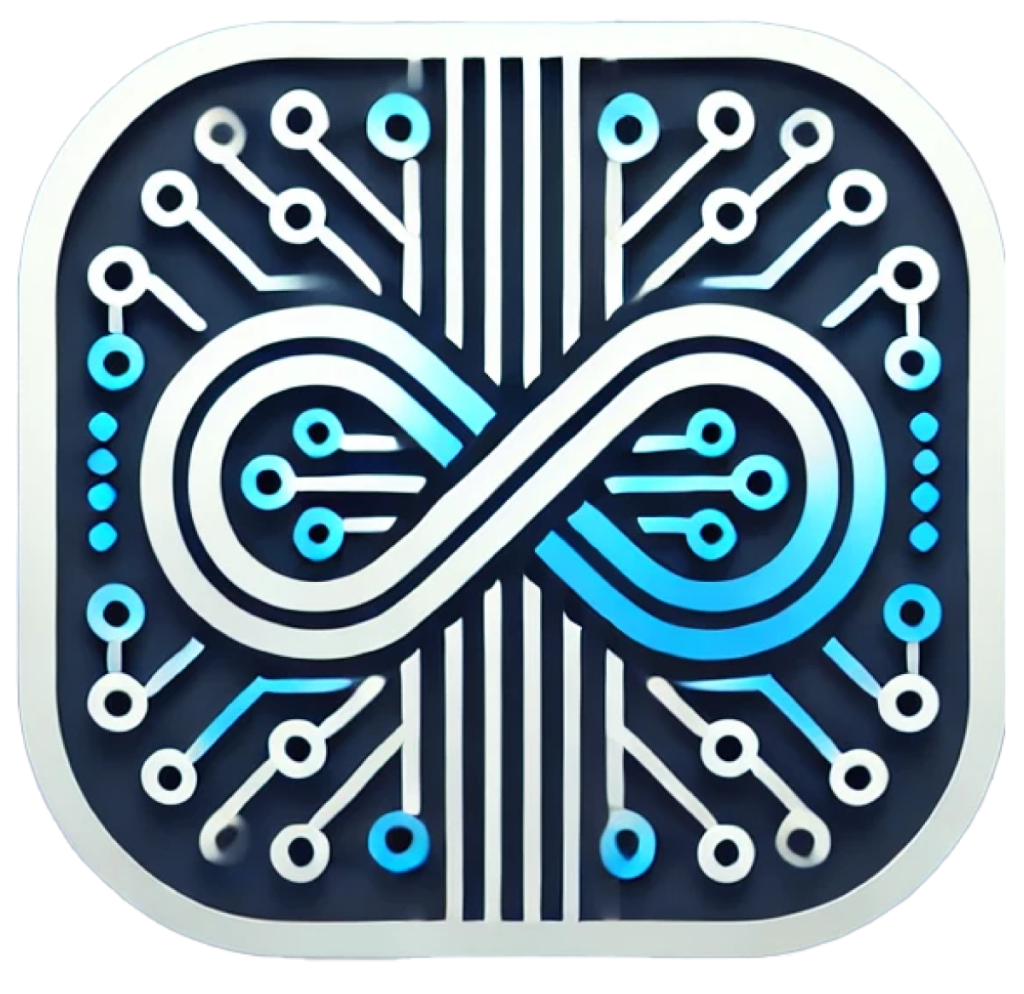It’s important to explore how AI-powered education tools are reshaping personalized education pathways for learners like you. These innovative technologies are designed to adapt to your unique learning styles and paces, providing tailored resources and support. As a result, you can optimize your educational experience, making learning more effective and engaging. This post will examine into the significant impacts these AI tools have on enhancing your learning journey and promoting individualized growth.
Understanding AI-Powered Education Tools
Definition and Types
To grasp how AI-powered education tools can reshape personalized education pathways, it’s imperative to define what these tools entail. Simply put, AI education tools utilize artificial intelligence to analyze student data, adapt learning materials, and provide tailored educational experiences. The types of these tools can vary significantly, catering to diverse educational needs:
| Type | Description |
| Adaptive Learning Systems | Platforms that adjust content based on students’ performance and learning speed. |
| Intelligent Tutoring Systems | AI that provides personalized feedback and guidance through one-on-one learning. |
| Chatbots and Virtual Assistants | AI-driven support systems that assist with inquiries or challenges in real-time. |
| Data Analytics Tools | Solutions that analyze educational data to identify trends and areas for improvement. |
| Learning Management Systems | Comprehensive platforms that integrate various AI functionalities to enhance coursework. |
Assume that you’ve utilized any of these tools in your learning process; you will likely notice significant changes in how educational content is delivered to you. The adaptability of these systems not only enhances your learning experience but also promotes better student engagement and retention.
Functionality and Mechanisms
Types of AI education tools operate on various mechanisms designed to enhance the learning process. These may include sophisticated algorithms that analyze your strengths and weaknesses, thereby tailoring educational content suited for your individual needs. Additionally, many tools incorporate natural language processing to facilitate realistic interactions, enabling you to engage more deeply with the material.
In addition, these AI systems can continuously learn from your interactions with the material and adjust their approaches accordingly. For instance, if you find certain topics more challenging, the system might provide additional resources or alternative explanations until you achieve better comprehension. This dynamic approach not only personalizes your education pathway but also promotes a more efficient and effective learning experience tailored specifically to you.
The Role of Personalized Education Pathways
Clearly, personalized education pathways have revolutionized the way students engage with learning materials and instructional methods. By focusing on individual strengths, preferences, and needs, these pathways offer a tailored approach that fosters deeper understanding and greater retention of knowledge. With the integration of AI-powered education tools, you can experience a learning environment that adapts in real-time, allowing you to progress at your own pace while receiving relevant resources and support to guide you through your educational journey.
Importance of Personalization
Education is not a one-size-fits-all experience; every learner holds unique characteristics and motivations that influence how they absorb information. Personalization ensures that your learning experience is aligned with your specific needs, which can lead to enhanced engagement and achievement. By utilizing AI-powered tools, educators can analyze data and create customized pathways, ensuring that you receive content that resonates with your learning style, thereby fostering a more impactful learning experience.
Benefits for Diverse Learners
After recognizing the importance of personalization, it’s crucial to understand how diverse learners benefit from tailored education pathways. These learning pathways provide accommodations for a range of learning abilities, styles, and backgrounds, which can help bridge gaps that traditional education models may overlook. With personalized education, you can access the resources and methods best suited for your individual circumstances, leading to improved academic performance and confidence in your abilities.
Learners from diverse backgrounds often face unique challenges within standardized educational frameworks. By incorporating personalized education pathways driven by AI tools, you gain access to resources that cater specifically to your learning needs. These tools can simplify complex concepts, provide alternative perspectives, and even offer linguistic support for non-native speakers. As a result, the educational landscape becomes more inclusive and equitable, empowering you to succeed on your terms.
Impact of AI on Personalized Education
One of the most significant advancements in educational technology is the emergence of adaptive learning systems. These systems leverage artificial intelligence to tailor learning experiences specifically to your individual needs. By analyzing your performance and preferences in real-time, adaptive learning platforms can modify content presentation, pacing, and difficulty levels. This personalization allows you to progress through educational material at your own speed, ensuring that you grasp concepts before moving on to more complex topics. As a result, you can enjoy a more effective and engaging learning experience, as the system aligns with your cognitive patterns and mastery levels.
Adaptive Learning Systems
One of the key advantages of adaptive learning systems is their ability to continuously assess your understanding and adjust the educational pathway accordingly. This dynamic approach fosters a sense of autonomy, empowering you to take control of your learning journey. Whether you excel in one area or struggle in another, these systems adapt to meet your unique requirements, ensuring that you receive the most relevant resources and support. By focusing on your specific strengths and weaknesses, adaptive learning systems not only improve retention but also enhance your overall educational experience.
Data-Driven Insights for Educators
Beside adaptive learning systems, AI-driven data analytics offer educators valuable insights that enhance personalized education. These insights provide a deeper understanding of your learning habits, preferences, and performance trends. By analyzing the data collected from various interactions with learning platforms, educators can identify patterns and tailor instructional strategies accordingly. This enables them to understand which teaching methods resonate with you, making it easier to create a supportive environment that fosters growth and improvement. Furthermore, the information empowers educators to offer targeted interventions when needed, ensuring that you stay on track with your educational goals.
Insights from AI-driven analytics can reveal not just individual trends, but also aggregate data that helps inform decision-making on larger scales. This allows educators to refine curricular designs based on what is working well for you and your peers collectively. With these insights, they can implement strategic changes that reflect your needs and those of the entire classroom, leading to a more informed and responsive teaching method. Ultimately, as educators gain a more nuanced understanding of your learning journey, they can significantly enhance the quality and effectiveness of your personalized education experience.
Case Studies of AI in Education
All around the world, educational institutions are utilizing AI-powered tools to refine and personalize educational pathways for their students. Several case studies illustrate the effectiveness of these technologies and their impact on student learning outcomes. The following bullet list provides insightful data from various implementations:
- Carnegie Learning: This AI-driven math tutoring program showed a 15% increase in student test scores compared to traditional methods within a year.
- Knewton: Using adaptive learning technology, Knewton reported that students were 20% more likely to complete courses when using their system versus traditional learning approaches.
- DreamBox: A study indicated that elementary school students using DreamBox’s platform demonstrated an average growth of 1.5 years in math proficiency over one academic year.
- Squirrel AI: In China, this adaptive learning tool utilized AI algorithms and revealed an increase of 30% in engagement rates among secondary school students.
- Duolingo: The widely-used language learning platform employs AI to customize lessons, leading to a 34% improvement in user retention over a three-month period.
Successful Implementations
Across various educational settings, institutions that have adopted AI-powered tools are witnessing measurable improvements in student engagement and academic performance. For instance, schools implementing adaptive learning platforms have tailored content to align with individual learning styles, resulting in improved retention and comprehension. The use of machine learning technologies in formative assessments allows educators to provide timely feedback, helping students navigate challenges more effectively. As an outcome of these innovative practices, schools report higher graduation rates and decreased dropout levels, affirming the potential of AI in fostering educational success.
Lessons Learned
An vital aspect of integrating AI into educational frameworks is understanding the implications of its use. While many institutions have experienced positive results, it’s vital to acknowledge the challenges faced during implementation. One common lesson is the importance of teacher training; without proper support, faculty may struggle to fully leverage AI tools, hindering their intended benefits. Additionally, data privacy concerns and student equity must be addressed to ensure that all learners can benefit from AI-enhanced tools.
In fact, these lessons point to the necessity of comprehensive planning and support systems in order to realize the full potential of AI in education. Institutions need to prioritize ongoing professional development for educators, as well as establish clear data governance policies to protect student information. Ensuring equitable access to technology and resources will ultimately create a more inclusive learning environment, allowing every student to thrive in their personalized education pathway.
Challenges and Limitations
Equity and Access Issues
Keep in mind that while AI-powered education tools offer remarkable opportunities for personalized learning, they also bring forth significant equity and access challenges. One pervasive issue is the digital divide, where students from lower-income backgrounds may lack access to the necessary technology and high-speed internet connectivity required to fully engage with these tools. This gap can hinder their learning experience compared to their peers who have more resources, thus amplifying existing disparities in educational outcomes.
One of the ways to mitigate these issues is by implementing school-wide programs aimed at providing all students with the necessary technology and internet access. However, without targeted efforts from educational institutions and policymakers, many students may find themselves left behind, unable to benefit from advancements in personalized education pathways. It’s vital for you, as an advocate for education, to recognize these disparities and support initiatives that aim to bridge the gap.
Data Privacy Concerns
Accessing and utilizing AI-powered education tools inherently involves a significant amount of data collection, raising important data privacy concerns. Your personal information, as well as that of students, is often collected to create tailored educational experiences. However, this raises questions about how that data is used, stored, and shared. If not managed properly, this can lead to situations where sensitive information may be vulnerable to breaches or misuse, creating mistrust in technology-based educational solutions.
Limitations also arise from the complexity of regulatory frameworks governing data privacy. As a user, you might find yourself uncertain about how your data is being handled or the extent to which your privacy is protected. The rapid development of AI tools often outpaces existing policies, making it vital for educational institutions to prioritize transparency and secure data management protocols. By staying informed about these issues, you can make more conscious choices about the educational tools you engage with and advocate for better practices. Your awareness can contribute to shaping a more trustworthy and equitable educational landscape.

Future Trends in AI and Education
Despite the rapid advancements in technology, the field of education is only beginning to realize the full potential of AI-powered tools. As AI continues to evolve, you can expect these tools to become increasingly sophisticated, providing tailored solutions that meet the diverse needs of learners. You may find that future AI applications will not only foster personalized learning environments but also bridge gaps in learning by seamlessly integrating real-time data and analytics. As a result, educators will have the capability to anticipate student needs, enabling them to deliver targeted interventions and support in ways that were previously unimaginable.
Emerging Technologies
After exploring the current landscape of AI in education, it is imperative to look towards emerging technologies that will further transform personalized education pathways. Innovations such as virtual and augmented reality, blockchain for educational credentials, and natural language processing will play a pivotal role in developing immersive and engaging learning experiences. These technologies aim to enrich the educational environment by allowing you to interact with content in ways that resonate with your personal learning style, making your education feel more relevant and effective.
Predictions for Personalized Learning
One of the most exciting aspects of the future of AI in education is its potential to reshape personalized learning. You can anticipate that AI will enable adaptive learning systems capable of adjusting the difficulty and type of content based on your unique performance and preferences. Such advancements mean that your educational journey can be tailored in a dynamic manner, ensuring that the material you engage with aligns with your ability level and interests.
And as AI technologies develop further, you may see a greater emphasis on data-informed learning strategies. These strategies will not only facilitate personalized learning but also empower learners like yourself to take ownership of your educational experiences through advanced feedback and customization options. With a more nuanced understanding of your learning preferences, you can navigate your educational pathway with confidence, ensuring that you reach your fullest potential.
Summing up
On the whole, AI-powered education tools have the potential to significantly enhance your personalized education pathways. By leveraging data analytics, these tools can assess your strengths, weaknesses, and learning styles, enabling the creation of tailored curricula that resonate with your individual needs. As a result, the learning experience becomes more engaging, allowing you to progress at your own pace while focusing on the areas that require more attention. With real-time feedback and adaptive learning technology, these tools help you stay motivated and on track, ultimately leading to improved outcomes.
Additionally, AI-powered tools can streamline the educational process by providing valuable resources and guidance, making it easier for you to access the materials and support you require. As these technologies continue to evolve, you can expect even greater advancements in customization and efficiency in your learning journey. With a growing reliance on AI in education, you are poised to benefit from richer, more dynamic learning experiences that cater specifically to your unique pathway in knowledge acquisition and skill development.
Q: How do AI-powered education tools enhance personalized learning experiences for students?
A: AI-powered education tools significantly enhance personalized learning experiences by analyzing individual student data, such as performance metrics, learning styles, and engagement levels. These tools use algorithms to tailor educational content, recommend resources, and adjust learning paths according to each student’s unique needs. For example, if a student struggles with a particular concept, the tool might provide additional exercises or alternative explanations to help strengthen their understanding. This adaptability allows for a more targeted approach, enabling students to progress at their own pace and ensuring that they master foundational skills before moving on to more advanced topics.
Q: What are some specific benefits of using AI in creating personalized education pathways?
A: The integration of AI in creating personalized education pathways offers numerous benefits. Firstly, it can help identify gaps in a student’s knowledge early on, allowing educators to intervene promptly. This timely response can lead to improved academic performance as students receive support where they need it most. Secondly, AI tools foster greater student autonomy by allowing learners to set their own goals and choose their learning materials based on their interests and career aspirations. This self-directed learning approach enhances motivation and engagement, as students take ownership of their educational journey. Lastly, these tools can facilitate collaborative learning by connecting students with similar interests or challenges, further enriching their educational experiences.
Q: What are potential challenges in implementing AI-powered education tools for personalized learning?
A: While AI-powered education tools offer substantial advantages, there are challenges to their implementation that need careful consideration. One significant concern is the reliance on data privacy and security, as student information is often collected and analyzed. Educational institutions must ensure robust measures are in place to protect this sensitive data. Additionally, access to technology can create disparities; students in under-resourced areas may lack the necessary devices or internet connectivity, hindering their ability to benefit from AI tools. Lastly, there could be resistance from educators who may be skeptical about integrating technology into their teaching methods. Effective training and professional development are important to equip teachers with the skills and confidence needed to leverage AI tools effectively in their classrooms.




0 Comments